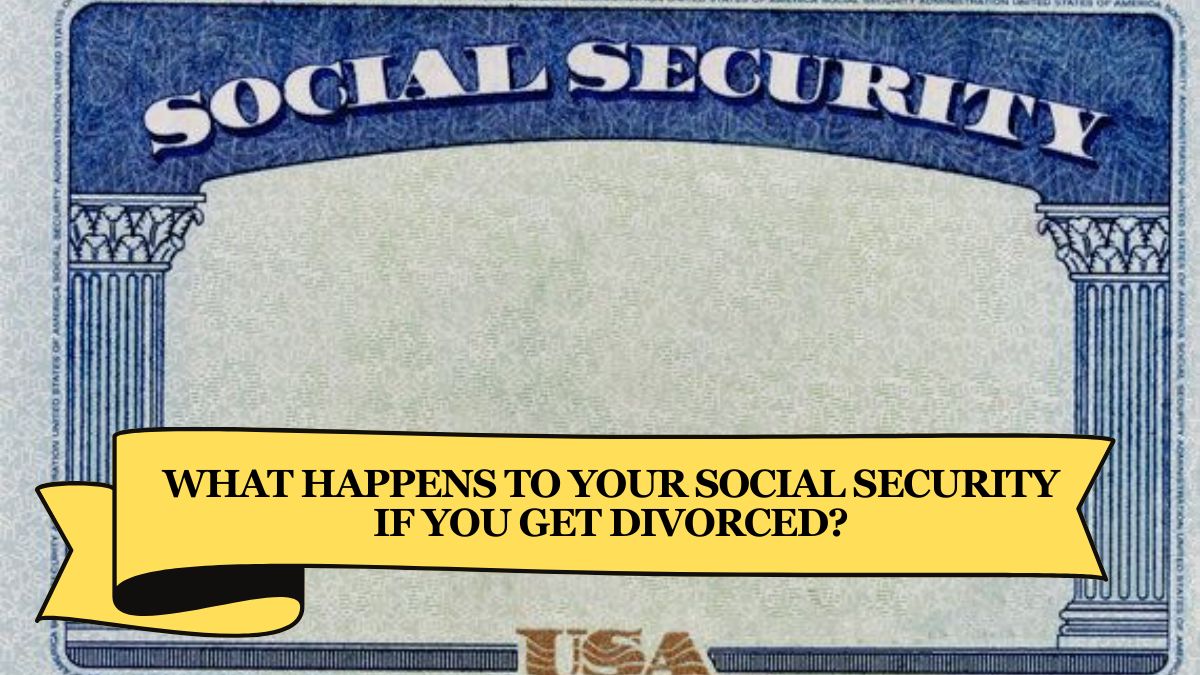Divorce can have many effects on your life, including your financial situation. One area that might surprise you is how it can impact your Social Security benefits. Social Security is an essential source of income for millions of older adults. In fact, a significant number of people rely solely on these payments for financial stability once they retire. So, how does divorce affect your benefits, and what can you expect in terms of your monthly check? Let’s explore how getting divorced can influence your Social Security benefits and what factors you should consider to ensure you get the maximum amount you’re eligible for.
How Divorce Affects Your Social Security Benefits
Divorce doesn’t automatically mean your Social Security benefits will be lowered or canceled. In fact, there’s a special rule that allows divorced spouses to still receive Social Security benefits based on their ex-spouse’s earnings. If you were married for at least 10 years and are now divorced, you may be eligible for these benefits.
The good news is that divorce benefits do not reduce your ex-spouse’s Social Security payments. Your ex-spouse’s check will remain the same, regardless of what you claim. However, there are specific requirements you need to meet before qualifying for these benefits.
Eligibility for Divorce Social Security Benefits
To qualify for Social Security benefits after divorce, you must meet the following conditions:
- You must be unmarried. If you’ve remarried, you won’t qualify for benefits based on your former spouse’s earnings.
- The marriage must have lasted at least 10 years. If your marriage was shorter than this, you will not be eligible for divorce benefits.
- You must be at least 62 years old. This is the minimum age to start collecting Social Security benefits. However, the earlier you start, the lower your monthly payments will be.
- You’ve been divorced for at least two years. If your divorce was finalised less than two years ago, you will need to wait until your ex-spouse starts collecting benefits before you can begin receiving your divorce benefits.
In addition to these requirements, you must also consider whether you are eligible for Social Security benefits based on your own work history. If you are eligible for higher benefits based on your own earnings, you may not be able to collect divorce benefits at all. The Social Security Administration will only give you the larger of the two amounts, not both.
How Much Can You Receive in Divorce Benefits?
The amount you can receive depends on your ex-spouse’s earnings. The maximum divorce benefit is 50% of your ex-spouse’s full retirement age (FRA) amount. Your FRA is determined by your birth year, and for most people born in 1960 or later, this is age 67.
If you choose to claim benefits before your FRA, your monthly payment will be reduced. For example, if you decide to take benefits as early as age 62, your divorce benefit could be permanently lower than if you waited until your FRA to file. However, unlike regular Social Security retirement benefits, delaying your claim beyond your FRA will not increase your divorce benefit payments.
If you qualify for your own retirement benefits, the Social Security Administration will compare the amount you are entitled to based on your work history with the divorce benefits. It will pay the higher of the two. For example, if your own retirement benefit is $800 per month and your ex-spouse will receive $2,000 per month, you can receive up to $1,000 in divorce benefits. This means that you will first get your $800 per month and then an additional $200 from your ex-spouse’s earnings.
Will Claiming Divorce Benefits Affect Your Ex-Spouse’s Benefit?
One common concern among divorced individuals is whether claiming divorce benefits will affect their ex-spouse’s advantages. The short answer is no. Your decision to claim divorce benefits will not reduce or impact the amount of Social Security your ex-spouse receives. They will continue to receive their retirement payments as usual.
Moreover, if your ex-spouse remarries, it won’t impact your ability to claim divorce benefits either. Even though you must be unmarried to qualify, their remarriage won’t affect your claim.
What If You Remarry?
If you get remarried, you will no longer be eligible for divorce benefits based on your previous spouse’s earnings. However, if your new spouse passes away or you get divorced again, you could become eligible for benefits based on that marriage. The key is that your eligibility is tied to your marital status at the time of your claim.
Getting divorced does not mean you have to miss out on Social Security benefits. If you meet the requirements, you may qualify for additional benefits based on your ex-spouse’s work record. These benefits could provide a significant financial boost during your retirement years, especially if your own earnings history was lower. However, it’s important to understand the rules around claiming these benefits, such as when you can apply and how the amount you’re entitled to is calculated. If you’re eligible, claiming divorce benefits could help ensure your financial security in retirement without impacting your ex-spouse’s payments.
You Must Visit: California State Online

